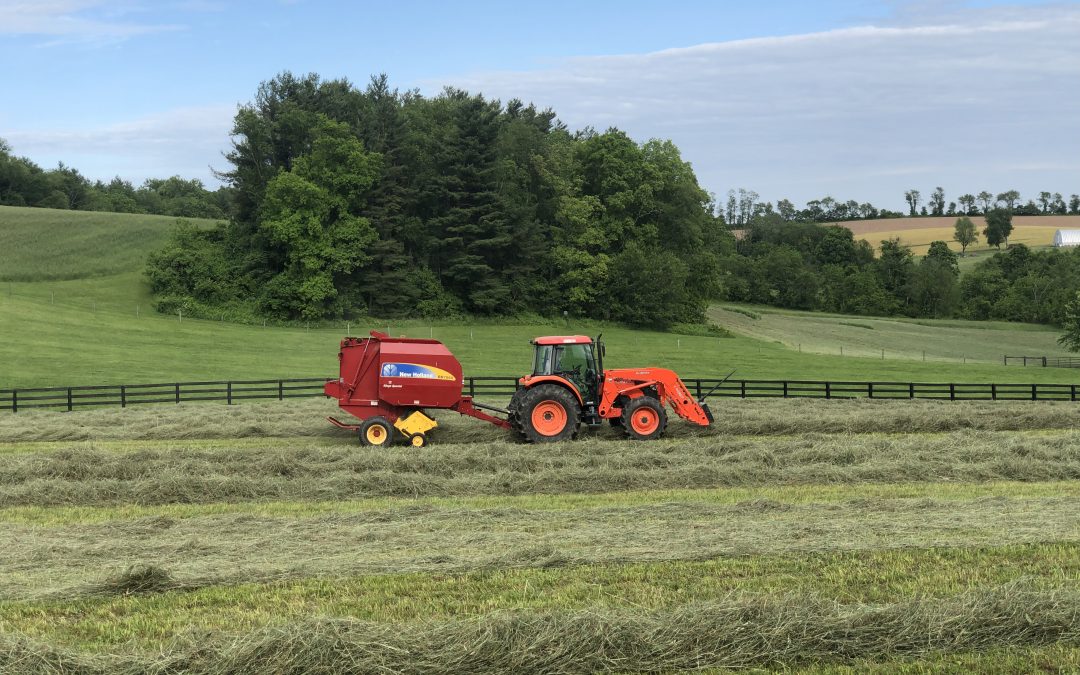August typically focuses mostly on harvesting and maintenance. Hay continues to be cut and hops harvested as well as sweet corn and tomatoes. However, this year the focus is on WATER – or the lack of. We have had a total of 2.0 in. since mid May – officially putting us in ‘desert’ levels of precipitation. It may be hard to believe with all the storms and heavy rain that has been around the area, but they have just kept going by us. All the streams on the farm are fed by local springs. Our main stream provides water to 5 pastures including our steers. It actually stopped running for a day for the first time in at least 75 years. After an inch of rain it is trickling again but it is hard to say for how long. If it stops again, we may have to start hauling water.
Normally we would be harvesting hops around the end of August. However, this year we gave up on the hops and turned the sheep into the hop yard early on. Hops need a lot of water and they just were not growing as we do not have a good way to irrigate them. We also needed the pasture that is in there as the grass has also quit growing. Hopefully rain will come, and we will be able to cut more hay
Other things that are ongoing are monitoring the sheep and managing the weeds. Summer is the time of year when the lambs are most susceptible to the impact of internal parasites. The primary culprit is commonly called the Barber’s Pole Worm (Haemonchus Contortus). These stomach worms feed on blood and can quickly cause severe anemia which can lead to death. One indicator is pale internal eye lids. We check our lambs eyes at least weekly and monitor their affect 2x / day. If you see them with colored marks on them, it is from having their eyes checked. They all can look pretty much the same, so we use a chalk market to indicate which ones have been done. Later in the month the ram lambs will need to be separated from the ewe lambs. (boys will be boys!). Some of our biggest weed challenges are thistles, Johnson Grass, and Mare’s Tail – all of which are considered noxious weeds in Maryland which means we are required by law to manage them. This is done primarily by mowing to prevent them going to seed. And the weeds are taking full advantage of less competition from the pasture grasses!

